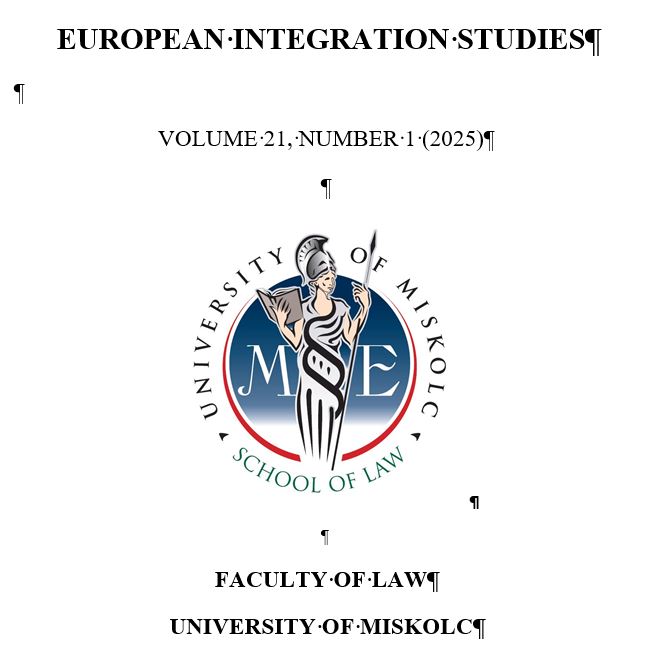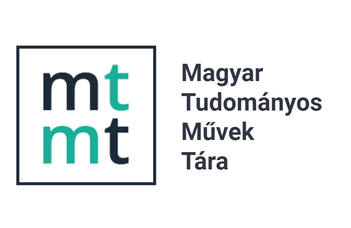Legal Regulation of MAR and Their Impact on the Child's Right to Origin Disclosure – A Slovenian Perspective
DOI:
https://doi.org/10.46941/2025.1.7Keywords:
infertility, artificial reproductive technologies, gamete donation, right to know the origin, personal data, anonymity.Abstract
Having a child remains one of the fundamental values of life for individuals. However, many individuals and couples face difficulties in conceiving a child naturally. The rapid development of medicine—in particular, reproductive medicine—has brought hope and the realisation of the desire to have a child to individuals and couples who, in the past, would have remained childless. Artificial reproductive technologies have been developed, enabling the conception of a child who is genetically related to both parents, as well as a child whose conception involves a third party (e.g., a gamete donor, surrogate mother, or mitochondrial parent). The rapid development of reproductive medicine also requires appropriate legal regulations. In particular, issues relating to the right to disclosure of persons conceived with donated gametes and the related right to know the (genetic) origin have been raised in recent years. Many legislations, including that of Slovenia, still lean more toward maintaining donor anonymity, with possible exceptions (e.g., medical reasons), primarily regarding access to non-identifying information about the donors. While Slovenian legislation emphasises the right of the child to information on their origin, it limits this to essential medical information and does not include personal data about the donor. This paper discusses possible amendments to existing Slovenian legislation in light of defining a child's right to origin disclosure and balancing the interests of the other parties involved.
References
Arsovski, N. (2024) Neplodnost in postopki oploditve z biomedicinsko pomočjo. [Online]. Available at: https://abczdravja.si/nosecnost-in-otroci/neplodnost-in-postopki-oploditve-z-biomedicinsko-pomocjo/ (Accessed: 5 November 2024).
Besson, S. (2007) ‘Enforcing the Child's Right to Know her Origin's: Contrasting Approaches under the Convention on the Rights of the Child and the European Convention on Human Rights’, International Journal of Law, Policy and the Family, 21(2), pp. 137-155.
Binet, J. R. (2022) Comparative study on access of persons conceived by gamete donation to information on their origins. Strasbourg: Council of Europe Publishing.
Calhaz-Jorge, C., De Geyter, C. H., Kupka, M. S., Wyns, C., Mocanu, E., Motrenko, T., Scaravelli, G., Smeenk, J., Vidakovic, S., Goossens, V. (2020) ‘Survey on ART and IUI: legislation, regulation, funding and registries in European countries: The European IVF-monitoring Consortium (EIM) for the European Society of Human Reproduction and Embryology (ESHRE)’, Human Reproduction Open, 2020(1), hoz044; https://doi.org/10.1093/hropen/hoz044.
Chan, N., Singer, J. (1999) 'Adoption, Identity, and the Constitution: the Case for Opening Closed Records', Journal of Constitutional Law, 2(1), pp. 150-94.
Clark, B. (2012) 'A balancing act? The rights of donor-conceived children to know their biological origins', Georgia Journal of International and Comparative Law, 40(3), pp. 619-661.
Cohen, I. G., Adashi, E. Y., Gerke, S., Palacios-González, C., Ravitsky, V. (2020) 'The Regulation of Mitochondrial Replacement Techniques Around the World', Annu Rev Genomics Hum Genet., 31(21), pp. 565-586; https://doi.org/10.1146/annurev-genom-111119-101815.
Colcelli, V. (2012) ‘Anonymous Birth, Birth Registration and the Child’s Right to Know Their Origins in the Italian Legal System: a Short Comment’, J Civil Legal Sci, 1:101; https://doi.org/10.4172/jcls.1000101.
Cretney, S. M. (2000) Family Law, 4th ed., London: Sweet & Maxwell.
Čolaković, M. (2021) Maloljetna osoba u građanskom pravu. Sarajevo: Dobra knjiga.
Deisinger, M. (2017) Kazenski zakonik 2017 – posebni del s komentarjem, sodno prakso in literaturo. Maribor: Poslovna založba MB.
Fortin, J. (2009) 'Children’s Right to Know Their Origins - Too Far, Too Fast?', Child and Family Law Quarterly, 21(3), pp. 336-355.
Frith, L. (2007) 'Gamete Donation, Identity, and the Offspring's Right to Know', Virtual Mentor. 9(9), pp. 644-648; https://doi.org/10.1001/virtualmentor.2007.9.9.oped1-0709.
Irvin, R. (2024) 'Politics, law and a lack of sperm: single women andfertility treatment in the Swedish health system', Anthropology & Medicine, 1-15; https://doi.org/10.1080/13648470.2023.2274684.
Ishii, T., de Miguel Beriain, I. (2022) 'Shifting to a model of donor conception that entails a communication agreement among the parents, donor, and offspring', BMC medical ethics, 23(1), 18; https://doi.org/10.1186/s12910-022-00756-1.
Jain, M., Singh, M. (2023) Assisted Reproductive Technology (ART) Techniques. IN: StatPearls [Internet]. Treasure Island (FL): StatPearls Publishing; [Updated 2023 Jun 7]. [Online]. Available at: https://www.ncbi.nlm.nih.gov/books/NBK576409/ (Accessed: 15 September 2024).
Kraljić, S., Drnovšek, K. (2019) 'Pomen in vloga pravnega standarda največje otrokove koristi v novem slovenskem Družinskem zakoniku in sodobni sodni praksi' in Šago, D. (ed.), et al. "Aktualnosti građanskog procesnog prava - nacionalna i usporedna pravnoteorijska i praktična dostignuća": zbornik radova s V. međunarodnog savjetovanja: 17. i 18. listopada 2019. godine, Splitu: Sveučilište, Pravni fakultet, pp. 113-129.
Kraljić, S. (2020) 'Legal challenges and dilemmas of cross-border reproductive care from Slovenian view' in Mirjanić, Ž., Milinković, I. M. (eds.) Conference Proceedings = Zbornik radova. International Scientific Conference "Transformative Technologies: Legal and Ethical Challenges of the 21st Century", 07-08 February 2020, Banja Luka, Banja Luka: Faculty of Law, pp. 71-81.
Kraljić, S. (2021) 'The right to know one’s origins in light of the legal regulations of adoption in Slovenia', Law, identity and values, 1(1), pp. 99-113.
Kraljić, S. (2022) 'Mater semper certa est– wirklich?' in Jašarbegović, A. (ed.). Porodica u aktuelnom pravnom i društvenom kontekstu: zbornik radova. Deseti međunarodni naučni skup Dani porodičnog prava. Mostar: Pravni fakultet Univerziteta "Džemal Bijedić", pp. 41-54.
Lamçe, J., Çuni, E. (2013) 'The Right of the Children to Know Their Origin in Adopting and Medically Assisted Reproduction', Mediterranean Journal of Social Sciences. 4(6), pp. 605-610.
Liu, S. (2020) 'Legal reflections on the case of genome-edited babies', Glob health res policy, 5, 24; https://doi.org/10.1186/s41256-020-00153-4.
Łukasiewicz, R. (2020) 'The Scope of Donor-Conceived Person’s Right to Access Information about the Gamete Donor in Europe – A Comparative Review', Journal of Politics and Law, 13(4), pp. 88-98.
Najzdravnik (n.d.) Neplodnost je velik svetovni problem, ki prizadene številne pare. [Online]. Available: https://najzdravnik.com/blogs/blog/neplodnost-velik-problem-na-nivoju-reproduktivnega-zdravja (Accessed: 11 September 2024).
Newson, A. J., Wilkinson, S., Wrigley, A. (2016) 'Ethical and legal issues in mitochondrial transfer', EMBO Mol Med., 8(6), pp. 589-91; https://doi.org/10.15252/emmm.201606281.
Novak, B. (ur.) (2019) Komentar Družinskega zakonika. Ljubljana: Uradni list RS.
Petrović, K., Blašković, T. (2014) 'Pravo deteta na identitet', Trendovi u poslovanju, 2/2014, pp. 79-87.
Preložnjak, B. (2020) 'Modern Challenges in the Implementation of the Child's Right to Know his Origin', EU and Comparative Law Issues and Challenges Series (ECLIC), 4, 1175–1203; https://doi.org/10.25234/eclic/11944.
Ravitsky, V. (2017) 'The right to know one’s genetic origins and cross-border medically assisted reproduction', Isr J Health Policy Res, 6(3); https://doi.org/10.1186/s13584-016-0125-0.
Reed, E., Kant, T. (2023) 'One donor egg and ‘a dollop of love’: ART and de-queering genealogies in Facebook advertising', Feminist Theory, 24(1), pp. 47-67; https://doi.org/10.1177/14647001211059522.
Reljić, M. (2019) 'Shranjevanje in prenašanje reproduktivnega materiala' in Kraljić, S., Reberšek Gorišek, J., Rijavec, V. (eds.), Globalizacija medicine v 21. stoletju, Maribor: Univerzitetna založba Univerze v Mariboru.
Riano-Galán, I., Martínez González, C., Gallego Riestra, S. (2021) ‘Cuestiones éticas y legales del anonimato y la confidencialidad en la donación de gametos’, An Pediatr (Barc), 94, pp. 337.e1-337.e6.
Sabatello, M. (2015) 'Disclosure of Gamete Donation in the United States’, Indian Health Law Review, 11(1), pp. 29-81.
Savulescu, J., Wilkinson, D. (2019) ‘Consequentialism and the Law in Medicine’. in de Campos, T.C., Herring, J., Phillips, A.M. (eds.). Philosophical Foundations of Medical Law [Select Chapters]. Oxford (UK): Oxford University Press.
Seiz, M., Eremenko, T., Salazar, L. (2023) Socioeconomic differences in access to and use of Medically Assisted Reproduction (MAR) in a context of increasing childlessness. Seville: European Commission.
Sharma, R. S., Saxena, R., Singh, R. (2018) 'Infertility & assisted reproduction: A historical & modern scientific perspective', The Indian journal of medical research, 148(Suppl), S10–S14; https://doi.org/10.4103/ijmr.IJMR_636_18.
Soni, S. (2024) 'Recent Developments in the Regulation of Heritable Human Genome Editing', J Bioeth Inq., 21(1), pp. 15-18; https://doi.org/10.1007/s11673-023-10332-w.
Wade, K. (2021) 'Reconceptualising the Interest in Knowing One’s Origins: A Case for Mandatory Disclosure', Medical Law Review, 28(4), pp. 731–752; https://doi.org/10.1093/medlaw/fwaa032.
Warnock, M. (1987) 'The good of the child', Bioethics, 1(2), pp. 141-155; https://onlinelibrary.wiley.com/doi/10.1111/j.1467-8519.1987.tb00023.x.
Adoption Contact Register. [Online]. Available at: https://www.gov.uk/adoption-records/the-adoption-contact-register (Accessed: 10 September 2024).
ESHRE (2022) ART Fact Sheet. [Online]. Available at: https://www.eshre.eu/Press-Room/Resources/Fact-sheets (Accessed: 11 June 2023).
Recommendation 2156 (2019)1 on Anonymous donation of sperm and oocytes: balancing the rights of parents, donors and children. [Online]. Available: https://pace.coe.int/pdf/b51082401b5728bcd4700d347e6a9e1e8cbb3865b2be482126cc6dc070712f66?title=Rec.%202156.pdf (Accessed: 9 September 2024).
United Nations – General Assembly, Report of the Special Rapporteur on the sale and sexual exploitation of children, including child prostitution, child pornography and other child sexual abuse material, A/HRC/37/60, 15 January 2018, p. 15. [Online]. Available: https://documents-dds-ny.un.org/doc/UNDOC/GEN/G18/007/71/PDF/G1800771.pdf?OpenElement (Accessed: 12 September 2024).
WHO (2023) Infertility – Key Facts. [Online]. Available at: https://www.who.int/news-room/fact-sheets/detail/infertility (Accessed: 11 June 2024).
World Health Organization (2023) Infertility prevalence estimates, 1990-2021. Geneva: World Health Organization.
World Health Organization (n.d.) Human genome editing. [Online]. Available at: retrieved from: https://www.who.int/teams/health-ethics-governance/emerging-technologies/human-genome-editing/ (Accessed: 12 September 2024).





